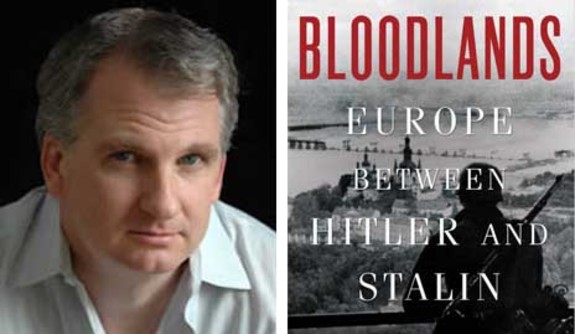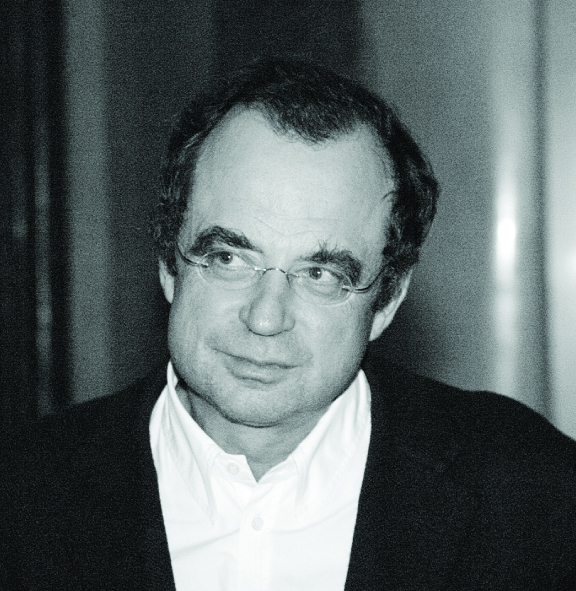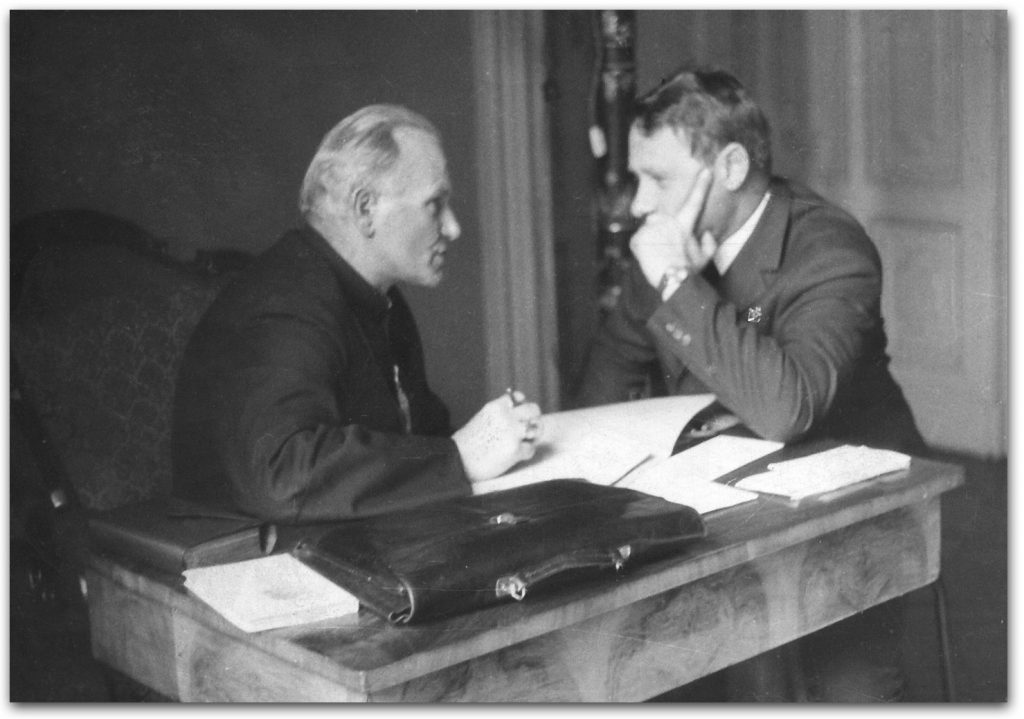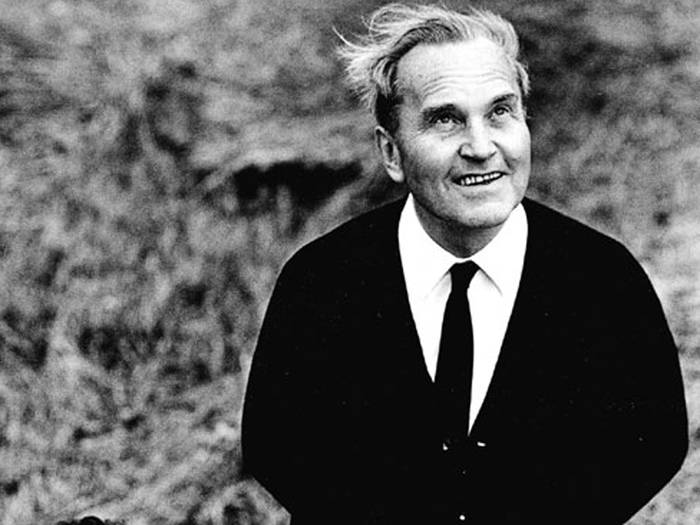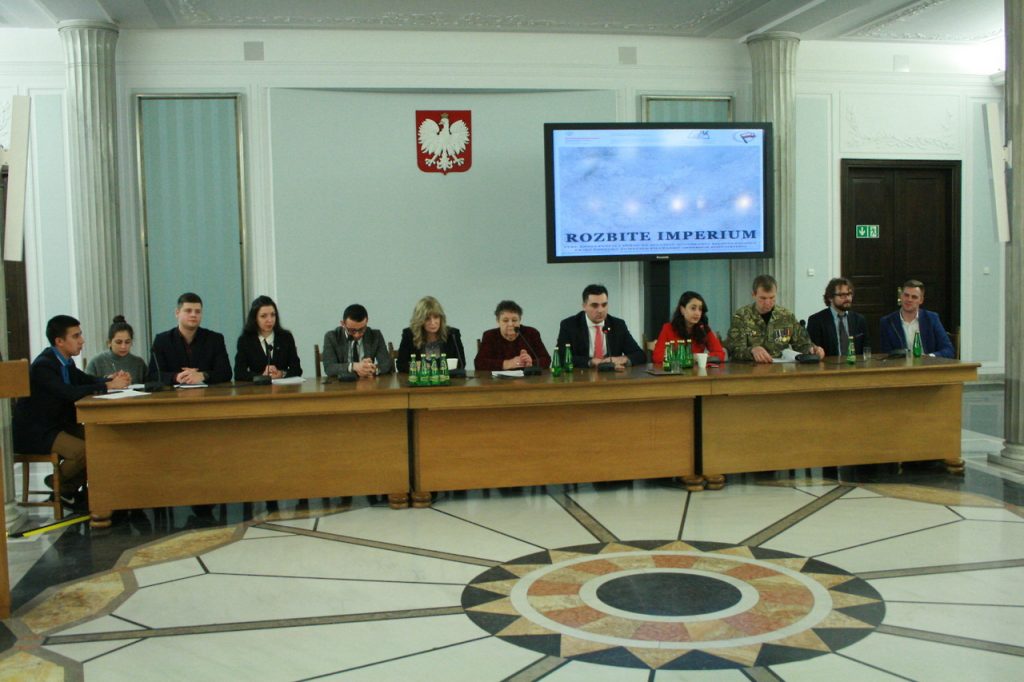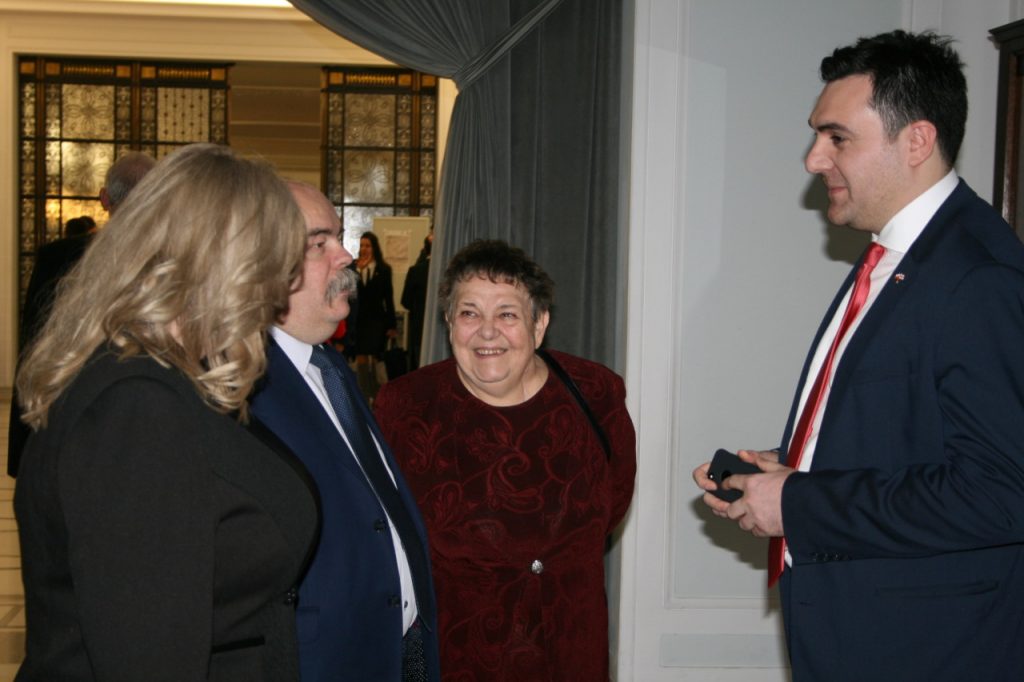A few days ago, a revocation of Olena Semenyaka’s fellowship at the Austrian IWM (Institute for Human Sciences) within the “Ukraine in European Dialogue” program took place. Official explanation states that the reason is her connection to the Ukrainian far right group (presumably the National Corps political party, which is not banned and founded run by her Intermarium Support Group that aims at deeper integration of Ukraine into the geopolitical area of Eastern and Central Europe). The alarm bell was her ancient carnival photo with a swastika flag trolling the Kremlin’s mouthpieces that label the Ukrainian patriots “Nazi.”
One would think that there is an abyss between ten-year-old politically incorrect jokes and political identification, “extremist activities” and shaping solidarity of “conservative” by modern standards Eastern and Central European countries in view of the Kremlin’s aggression. This difference, ideally, should have been a subject of promised investigation by the competent personnel of the IWM. But it never happened. Thus, although the biggest antiheroes in the entire story are the stalkers of yellow press like Michael Colborne who misquote Olena Semenyaka and distort her answers, and with a due respect for scientific merits of the senior colleagues, we consider it utterly anti-intellectual and non-pedagogical on the part of IWM to block the possibility of a dialogue and spread around the message of the “toxicity” of their own would-be fellow.
We are grateful to the researchers, former staff members, graduates of the IWM and related persons, intellectuals of various political backgrounds and allies who criticized the IWM administration’s decision to revoke Olena Semenyaka’s fellowship. Undoubtedly, this incident will have a continuation, as big and lasting as the wish of the architects of cancel culture to exclude her from an intellectual and scientific exchange.
A true dialogue with the contemporary Ukrainians facing the hybrid warfare of the Russian Federation will inevitably contain reflections about fake accusations of “Neo-Nazism,” which are addressed by its propaganda machine to the entire Ukrainian nation, difference of Eastern and Western European political cultures and understandable rise of patriotic sentiments in Central and Eastern Europe in response to Putin’s neo-Soviet revanchism and shortcomings of Western globalization mechanisms, and countering Kremlin’s lobbyists among the Western right-populist parties, again, often misleadingly referred to in mass media as “Neo-Nazi” or “far right” ones. Not unrelated to Olena Semenyaka’s research project submitted to the IWM (mentioning “the perplexities of current Ukraine’s assertion of its European choice”), although not its subject (see more below), these issues, in our firm opinion, should be discussed in-depth in Western European academic and analytical institutions.
The Intermarium Support Group will always be at the disposal of those who understand the urgency of such interaction instead of simulacrum of the exchange under the pressure of all-too-real cancel culture.
On January 11, 2021, the Austrian Institute for Human Sciences (Institut für die Wissenschaften vom Menschen, IWM) announced the cancellation of the scholarship program of Ukrainian researcher Olena Semenyaka for her connections with the “Ukrainian far-right group” – apparently her activities as a coordinator of such an “extremist” organization as the Intermarium Support Group established by National Corps.
Olena Semenyaka’s research project won on a competitive basis, but as soon as the respective publication appeared on the institution’s website, dozens of columnists of the essentially yellow press started sending outraged letters to the IWM’s email box along with their multiple Russian counterparts. Despite criticism from a number of independent researchers and intellectuals of various political persuasions, the institute’s administration announced a reevaluation of the choice in favor of Olena Semenyaka and promised to conduct investigation with the help of a selection jury. However, within a few hours, the next day’s meeting with the researcher at the institute was canceled, and the institution’s resources reported that it was distancing itself from Olena Semenyaka’s “far-right activities and statements,” as well as about immediate cancellation of her scholarship program, most likely on the initiative of the rector of IWM.
The academic ethics of the institute’s administration is clearly characterized by the fact that her travel and other expenses in preparation for the study since the spring of last year, as of today, are not reimbursed, and will hardly be reimbursed in the future. Such a violation of the rights of a Ukrainian citizen on the basis of her “views,” “overlooking” which the rector blamed on the selection jury, looks especially comical against the background of the recognition of her academic abilities by the prestigious Viennese institution. We hope that administrative influence and corporate dependence will not deter academics and those who disagree with this decision for long.
The Institute for Human Sciences was founded in 1982 by Polish philosopher Krzysztof Michalski, who had remained the rector of the institution until his death in 2013. The institute was co-founded by Polish priest and philosopher Józef Tischner, and both thinkers were friends of Pope John Paul II, naturally, Catholic conservative. Tischner was the mastermind of Poland’s first independent trade union, Solidarność, which was founded in 1980 and had become the center of a broad anti-communist resistance movement. The first ones to break through the Iron Curtain of the Soviet Union, these philosophers sought to give the floor to other Eastern European intellectuals who had hitherto been completely unrepresented in Western European intellectual and sociopolitical space, unlike Homo Sovieticus with his interpretation of history.
It was for this purpose that the Viennese IWM was established, which has a number of fellowship programs for Eastern Europeans named after the founding fathers: Krzysztof Michalski, Józef Tischner, and Michalski’s mentor, Czech thinker Jan Patočka, who died after lasting interrogation by the Communist Party of Czechoslovakia and belonged to the milieu of anti-communist and at the same time conservative Eastern European philosophers-phenomenologists.
One of the institute’s honorary Permanent Fellows is well-known modern philosopher Charles Taylor, whose theory of communitarianism, which focuses on civic responsibility to the community, its good, and the virtues of citizens in line with classical antiquity, is considered neoconservative. The philosopher also specializes in the legacy of Martin Heidegger, one of Jan Patočka’s teachers, to whom Krzysztof Michalski’s first dissertation is dedicated, a prominent but controversial philosopher of the 20th century who was the rector of the University of Freiburg during National Socialism. Moreover, Heidegger was largely rehabilitated and reintegrated into the academic discourse by his left-wing followers like Jean-Paul Sartre – a level of academic freedom unthinkable for the modern IWM.
Not surprisingly, Olena Semenyaka, who has repeatedly expressed sympathy for the New Right intellectual landscape, applied for the IWM fellowship program without any reservations about the possible incompatibility of her views with the values of the institution. Her research project was dedicated to Jan Patočka, whose archives are kept at the institute, as this thinker was also an attentive reader and admirer of her main research interest, German philosopher and the leader of the current of “Conservative Revolution” Ernst Jünger. The title of her project in the framework of the program “Ukraine in European Dialogue,” “Jan Patočka on Ernst Jünger’s Dialectic of Enlightenment, and ‘Europe after Ukraine’,” alluding to the concept of “Europe after Europe,” or “post-Europe” by Patočka, is quite eloquent. This is about Jüngerian version of “dialectic of Enlightenment” by Max Horkheimer and Theodor Adorno, who demostrated how radical Enlightenment ideals turn into their opposite in a bloody history of totalitarianism in the 20th century, but as seen “from the Right” (and preceding in time).
Inspired by Ernst Jünger’s critique of the modernity and personal experience of transformation at the front, in his magnum opus “Heretical Essays in the Philosophy of History” and shortly before his de facto violent death, Jan Patočka called to counter such tendencies by efforts of a solidary community. Interestingly enough, Pope John Paul II was also an admirer of Ernst Jünger, who exposed pseudo-liberal censorship in the vein of the modern IWM and was one of the founders of totalitarian studies, equally critical of both right-wing and left-wing forms of totalitarianism. Actually, the story of Olena Semenyaka’s fellowship program became the brightest illustration of her project: how seemingly liberal values of freedom of thought and speech turn into their totalitarian opposite, cancel culture.
The decision to exclude Olena Semenyaka from the scholarship program was primarily made by Shalini Randeria, the current rector of the IWM and the director of the Albert Hirschman Center on Democracy at the Graduate Institute of International and Development Studies (IHEID, Geneva, Switzerland). It was Mrs. Randeria who, in fact, shifted the institute’s research focus from the dialogue between Eastern and Western Europe to postcolonial studies, multiple modernisms, and globalization with an emphasis on South Asia, especially India, her ethnic homeland. She took office only in 2015.
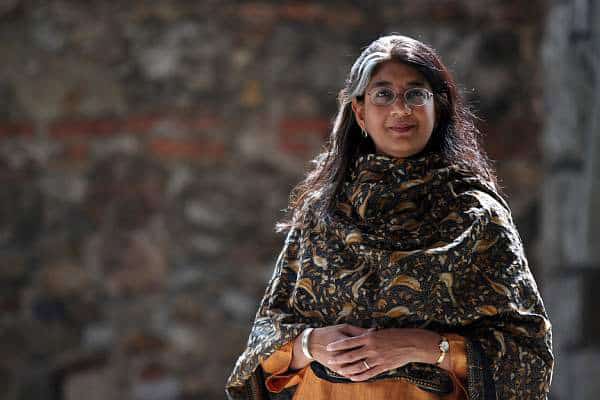
It is quite symbolic that Olena Semenyaka, a “far right activist” in the eyes of Mrs. Randeria, spoke in the solemn Column Hall of the Polish Sejm at the “Shattered Empire” conference, which was organized in 2017 by Jadwiga Chmielowska and Piotr Hlebowicz, revered Polish dissidents, activists of “Fighting Solidarity” (Solidarność Walcząca), the radical anti-communist organization formed in the same year as the institute after the beginning of the repression against “Solidarity” as a broad social movement.
The conference was also attended by Małgorzata Gosiewska, the current Vice Speaker of the Polish Sejm from the ruling Law and Justice party (PiS), and Ilia Darchiashvili, Georgia’s Ambassador to Poland. The event was closed with a broadcast of the film about the death of Polish President Lech Kaczyński in the plane crash near Smolensk, who also started his political career in the ranks of “Solidarity” and at a rally against the Russian occupation of Georgia in Tbilisi in 2008 in the presence of other heads of the region’s states prophetically said as follows: “Today Georgia, tomorrow Ukraine, the day after tomorrow the Baltic States, and then will follow the turn of my country, Poland.”
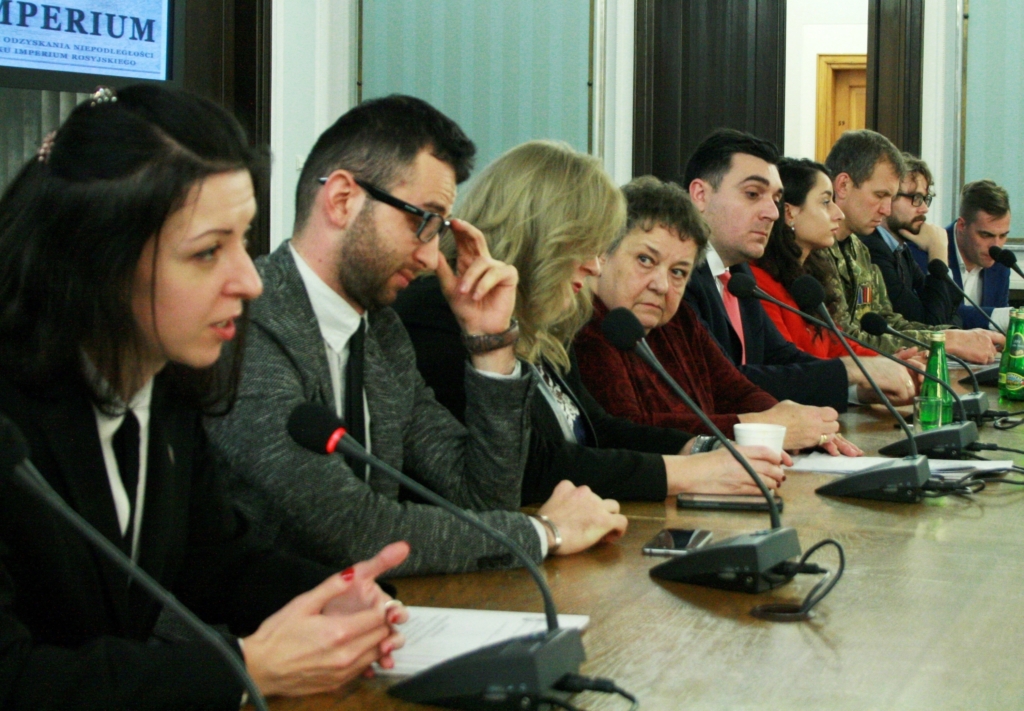
The topic of Olena Semenyaka’s report is “Adriatic-Baltic-Black Sea Intermarium: From Independence to Sovereignty”; the organization she represents, the Intermarium Support Group, established by Andriy Biletsky, National Corps Leader, the founder and the first commander of the Azov Regiment of the National Guard of Ukraine, is also well-known. Neither her old sarcastic photo with the swastika banner, which is so popular in the yellow press, nor her participation in conferences of Western New Right parties and metapolitical communities was an obstacle to making this speech in the Polish society, which is no less sensitive to totalitarian symbols than the Austrian one. And the latest conference of the Intermarium Support Group, which was moderated by Olena Semenyaka, was opened by none other than former Polish Ambassador to Ukraine Jan Pieklo, who presented Małgorzata Gosiewska’s report on Russian war crimes in the Donbas to the Criminal Court in The Hague.

So what’s exactly going on? A public figure who was expelled from the fellowship program at the IWM, founded by the Polish champions of “Solidarity,” for the links to an allegedly extremist and totalitarian “Ukrainian group,” the Azov Movement (in fact, the National Corps political party, which recently showed its first success also in the regional election), is invited by the real representatives of “Solidarity” to the Polish parliament, who continue the cooperation with her, precisely for her contribution to the dialogue between Polish and Ukrainian historical memories and overcoming the difficult pages of their common past between Scylla and Charybdis of the two totalitarian regimes. That is, for her contribution to the ecumenical, unifying project of the Intermarium Support Group, the program of which lists as the primary the goal of neutralizing chauvinism and discord in the region of Central and Eastern Europe in the face of the threat of Russian neo-imperialism. Another honorary Permanent Fellow of the Institute, American Professor Timothy Snyder, i.a., the author of “Bloodlands. Europe between Hitler and Stalin,” who was involved in the reevaluation of Olena Semenyaka’s fellowship, is perfectly aware of the Volyn’s place in the Polish national memory and identity and de facto accused Vladimir Putin of “reversed fascism,” could say a lot about both the academic and socio-political significance of her work. Yet he chose, at best, to remain silent.
Thus, who has more authority in the issue of “extremist” and “totalitarian” views of Olena Semenyaka as the coordinator of the Intermarium Support Group founded by National Corps: Polish dissident, journalist, publicist Jadwiga Chmielowska, who has been active in “Solidarity” since its inception and has devoted her entire life to the anti-communist underground struggle, and whose mass media will receive this text, or new IWM rector Shalini Randeria, who essentially betrayed the original idea of the institute’s Polish founders and “Solidarity” spokesmen seeking to give the floor to Eastern European fighters against communism in the West? The question is rhetorical, but, brought to a logical conclusion, it raises the issue of the conformity of the approaches of the rector to academic values of the IWM instead of Semenyaka’s “views.” And it is not so much about the “original spirit” of the IWM, which has changed over time, but about the arbitrary blocking of a dialogue with young Eastern European patriots by its administration, promoting cancel culture instead of understanding and cooperation, which, of course, will only reach a new level after this counter-example of academic neutrality.
